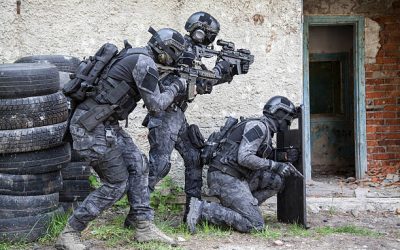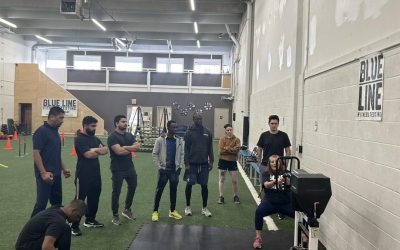The importance of physical wellness for first responders is essential for us to be able to do the best job possible.
Physical Wellness in First Responders is the Key to Healthy Communities.
The communities that we serve rely heavily on local emergency personnel to ensure public safety and survival in emergency and traumatic situations. Whether they’ve injured themselves, been a victim of a crime, or fallen victim to a house fire, these citizens are reaching for the phone and calling first responders.

First responders, such as Peace Officers, Correctional Officers, Canadian Boarder Protective Servicers (CBSA), RCMP, and Police have physically and mentally demanding jobs.
We need to be able to complete job tasks in unstable environments under high mental stress, wearing heavy gear, and we are required to be “better than the average bear.” Common tactical workplace duties include repetitive heavy lifting in awkward situations, various running/jogging tasks (including pursuits) and emotional distress. The demands on first responders are highly physical in nature and even more taxing mentally. Being in better shape physically and mentally means being better prepared for the unpredictable.
We’ve all seen a meme or two or heard jokes about out-of-shape cops hanging out at the donut shop with their partners, sipping coffee and chatting. While this may be funny for some, it can actually be a sad reality for others.
As law enforcement officers, we have set fitness standards and testing procedures in place for recruits and applicants looking to enter our workforce.
Testing protocols usually include timed tasks and stations simulating events or situations likely to occur on the job. Candidates that fail to complete the physical evaluations within the set time are not granted employment. The issue we are seeing now, however, is that once hired on, most law enforcement (and other first responder careers) never re-evaluate the physical well-being of their workers. Most organizations simply encourage fitness but without a guide or mandate or support and time to do this. You are simply left to your own devices and it is assumed you know what to do in order to stay fit. You passed that test one time, right?
Many police officers, correctional officers, and firefighters personally hold themselves accountable to get in the weight room and maintain their fitness. Other members, after passing recruit/basic training, never step foot in the weight room or jog again. In some cases for these officers, it appears to be a lack of knowledge of HOW and WHAT to exercise effectively and efficiently, while working shifts, and how to fit these activity sessions in around all the other tasks that we are responsible for each day. So physical wellness in many first responders goes by the wayside.
There are several other factors that come into play when we discuss physical wellness vs physical fitness in a first responder scenario.
There is a tendency to forget that first responders are also extremely susceptible to injury. It isn’t uncommon for emergency personnel to suffer acute injuries during their time on duty or to become physically debilitated from chronic pain. The most common injury and pain reported across all professions is lower back pain (Heavy duty belts and vests that are ill-fitting sound familiar?!) with shoulder and knee injuries/pain a close second. A high percentage of these lower back injuries arise from lifting or moving heavy objects repeatedly in awkward positions. Unfortunately, injury prevention is just as much or more neglected, than improving overall fitness levels.
Although it is impossible to prevent all injuries on the job, having a higher fitness, mobility, and strength level can certainly improve your chances. Additionally, the severity of an injury is usually decreased in members with higher mobility and strength levels. For emergency personnel, this could mean a relatively pain free career while on active duty and fewer days off due to injury. A catered fitness program specifically for first responders that targets safe joint movement, flexibility and strength training can not only help improve general fitness levels, but also decrease risk of physical injury (both acute and chronic).
Another factor that is often skipped when discussing physical wellness in first responders is your quality of life AFTER you turn in that badge and retire. You have worked a long time to earn the sweet pay off of retirement and yet, many first responders don’t even make it to retirement.
I’m going to get really serious here for a minute. It’s important that we discuss the lifespan of first responders and how physically fit emergency personnel tend to live longer. It has been reported that the average lifespan of a police officer is 21 years less than regular civilians. Not only that, they are THREE TIMES more likely to die on the job compared to other professions. A large contributor to police officer mortality was physical injury, stress and obesity. Those that do make it to retirement that are physically unwell, are not able to enjoy the fruits of their labour and participate in the activities (golf, hiking, travel!) that they dreamed about during those long night shifts a few years prior, due to chronic pain and injuries sustained while working.
Regular fitness training will not only ensure better and safer task completion on duty, but can ensure you clock out in good condition as well. For more information on how you can stay fit and keep up your physical wellness as a first responder, let’s chat! We have training programs available for you!
Until then, stay safe, watch your 6, and check out Blue Line Fitness Testing on Instagram and online.







